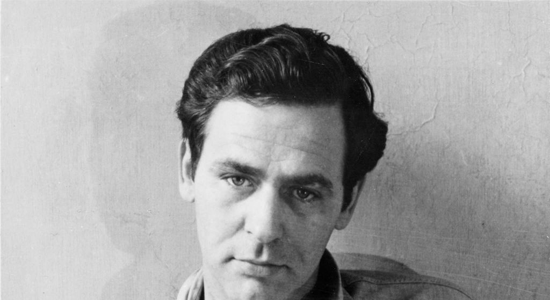It’s one thing to be a creative quadruple threat (film actor, stage actor, television actor, musician); it’s another thing entirely to excel as a quadruple threat for the better part of 43 years. From multiple Tony nominations—and wins—to starring roles on Fame and Treme, Michael Cerveris may be best known for his versatility as a thespian, but he proves just as formidable behind the mic on his long-awaited sophomore solo album, Piety. His sonic pedigree is unsurprisingly impressive, having shared the stage with the likes of the Breeders, Bob Mould, Teenage Fanclub and Frank Black. Cerveris will be guest editing magnetmagazine.com all week. Read his MAGNET Feedback.
Cerveris: James Agee died in 1955 at the age of 45, leaving behind a body of work that included poems, novels, screenplays, film criticism and one towering work that defies most attempts to categorize it, Let Us Now Praise Famous Men. He was born in Knoxville, educated at Exeter and Harvard and landed in New York to begin his career as a writer. I found him first through the collection of his letters home while at Exeter to his boyhood priest, Father Flye. As a former alter boy and folk mass guitar player, raised in West Virginia and finding myself mystifyingly attending the same rarefied Northern private school, I immediately connected to young Agee’s soul searching and angel wrestling. I then began devouring his poems and novels, watched The African Queen and Night Of The Hunter, read biographies and articles. A prose poem, “Knoxville: Summer Of 1915,” which was later gorgeously set to music by Samuel Barber, is simultaneously the most evocative description ever of an ideal childhood summer evening, and the heartache of remembering it.
His Pulitzer Prize winning autobiographical novel, A Death In The Family, is another essential meditation on family and loss, but the book that looms largest is the result of an assignment in 1936 from Forbes magazine. He and photographer Walker Evans were sent in the midst of the Great Depression to write about the Alabama sharecroppers living in the shadow of the TVA. It’s a book describing abject Southern poverty, part novel, part documentary, part sociology, part philosophy and several parts that just defy categorization. Forbes, not surprisingly, never published the full article, which was discovered in 2003 and published as Cotton Tennants: Three Families. The full opus of Let Us Now Prais… can take some work getting through at times, but then a lengthy description of overalls, for example, will suddenly turn simple observation into an art form. Taken all together, it’s an epic tone poem of humanity and the dignity in the humblest places. The Guardian called Agee “an angry Vermeer of deprivation,” and the fire at the heart of that description is what burns in all his writing. A restless spirit, unafraid to wrestle with eternal things in the most quotidian places.
If his instruction (from Let Us Now Praise Famous Men) concerning how to listen to music were all he had ever written, it would be enough to make him my favorite author:
“Get a radio or a phonograph capable of the most extreme loudness possible, and sit down to listen to a performance of Beethoven’s Seventh Symphony or of Schubert’s C-Major Symphony. But I don’t mean just sit down and listen. I mean this: Turn it on as loud as you can get it. Then get down on the floor and jam your ear as close into the loudspeaker as you can get it and stay there, breathing as lightly as possible, and not moving, and neither eating nor smoking nor drinking. Concentrate everything you can into your hearing and into your body. You won’t hear it nicely. If it hurts you, be glad of it. As near as you will ever get, you are inside the music; not only inside it, you are it; your body is no longer your shape and substance, it is the shape and substance of the music.
Is what you hear pretty? or beautiful? or legal? or acceptable in polite or any other society? It is beyond any calculation savage and dangerous and murderous to all equilibrium in human life as human life is; and nothing can equal the rape it does on all that death; nothing except anything, anything in existence or dream, perceived anywhere remotely toward its true dimension.
Beethoven said a thing as rash and noble as the best of his work. By my memory, he said: ‘He who understands my music can never know unhappiness again.’ I believe it. And I would be a liar and a coward and one of your safe world if I should fear to say the same words of my best perception, and of my best intention.
Performance, in which the whole fate and terror rests, is another matter.”
Video after the jump.







